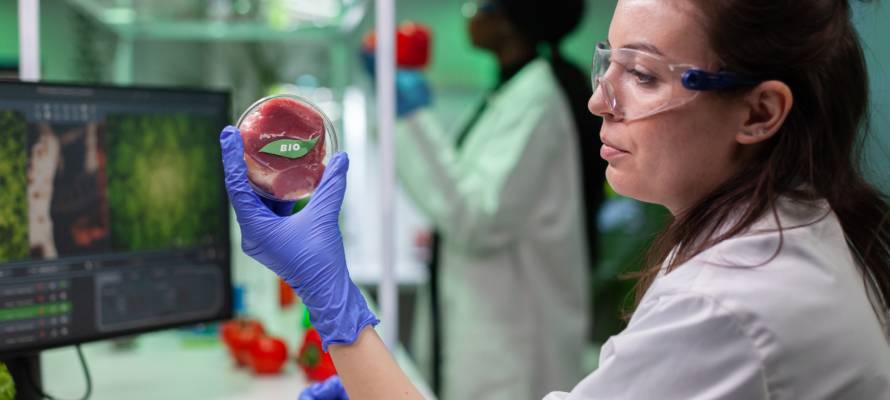Could the tobacco plant be the key to jumpstarting the cultivated meat industry?
By Brian Blum, Israel21c
Kiryat Shemona-based food-tech startup BioBetter has developed a tobacco-based platform to enable low-cost mass production of the growth factors needed to create meat in a lab.
BioBetter estimates that its new technology could generate thousands of tons of growth factors at $1 per gram, dramatically reducing the price of a lab-grown burger or steak. One source estimates that current growth factors used in cultivated meat cost $2 million per gram to produce.
“It is estimated that growth factors and cell-culture media can constitute 55% to 85% of the marginal cost in manufacturing cell-based foods,” said Dana Yarden, one of BioBetter’s cofounders.
Growth factors are proteins found in humans and plants, enabling cells to differentiate and proliferate. They can be manufactured by fermenting yeast or bacteria, but it’s a complex process requiring clean-room facilities. Insulin and transferrin can also be used as growth factors, but they must be collected from livestock.
BioBetter’s proprietary technology utilizes the entire tobacco plant’s green biomass as a “bioreactor” for high-quality purified protein.
“The tobacco plant has clear advantages as a hardy vector for the production of growth factors from a non-animal source,” explains Amit Yaari, BioBetter’s CEO.
“It grows quickly, accumulates a large biomass, and can yield four harvests a year. It is also suited for the production of a large number of complex proteins.”
Yaari pointed out that tobacco “is an abundant crop that has no place in the food-and-feed chain due to its extremely bitter taste and content of undesirable alkaloids. The tobacco plant has vast potential to become a key element in the future of food.”
BioBetter was founded in 2015 by Prof. Oded Shoseyov, a serial entrepreneur and researcher at the Hebrew University’s Rehovot campus; Yarden, a biotech business expert; and Avi Tzur, an industrialist with a vision to put the tobacco plant to positive use. Tzur was also the first investor in the technology.
The company currently employs 23 researchers and has raised $5 million from private investors and VC Alpha Capital Anstalt.
